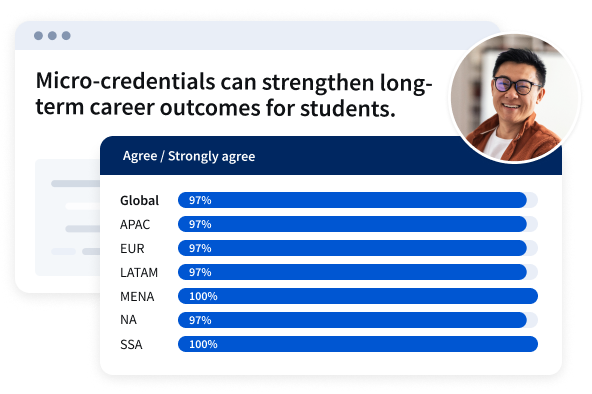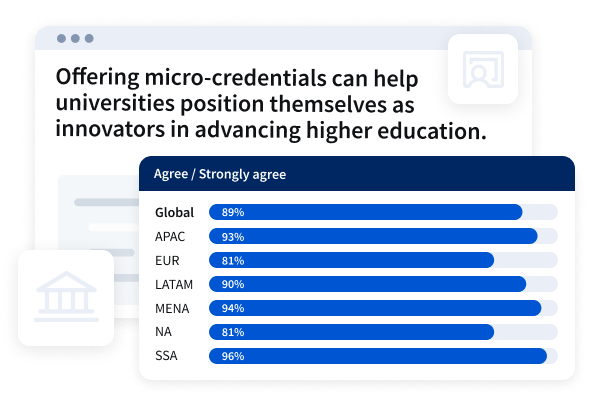Advancing the value of higher education with micro-credentials
Explore how campuses worldwide are rapidly adopting micro-credentials and shaping the future of learning.
51%
of campus leaders say their institutions are integrating micro-credentials
53%
offering micro-credentials provide credit options; 82% intend to do so within 5 years
72%
aim to grow their programs, reaching more students or adding more micro-credentials
Data Highlight: Job Outcomes
Micro-credentials prepare students for work in a changing world
By 2027, 60% of the workforce will require training, yet only half currently has access. Campuses are key to bridging this gap, and micro-credentials are a powerful solution: 97% of global higher education leaders at institutions offering them say they enhance students’ long-term career prospects, while regional consensus is equally strong.

Data Highlight: Brand
Micro-credentials strengthen innovation and reputation for institutions
By embracing micro-credentials, universities can innovate curricula, attract talented students and faculty, and expand their reach, staying adaptable and competitive. Globally, 89% of campus leaders not offering micro-credentials believe adopting them would position their institutions as educational innovators, a view shared across regions.









